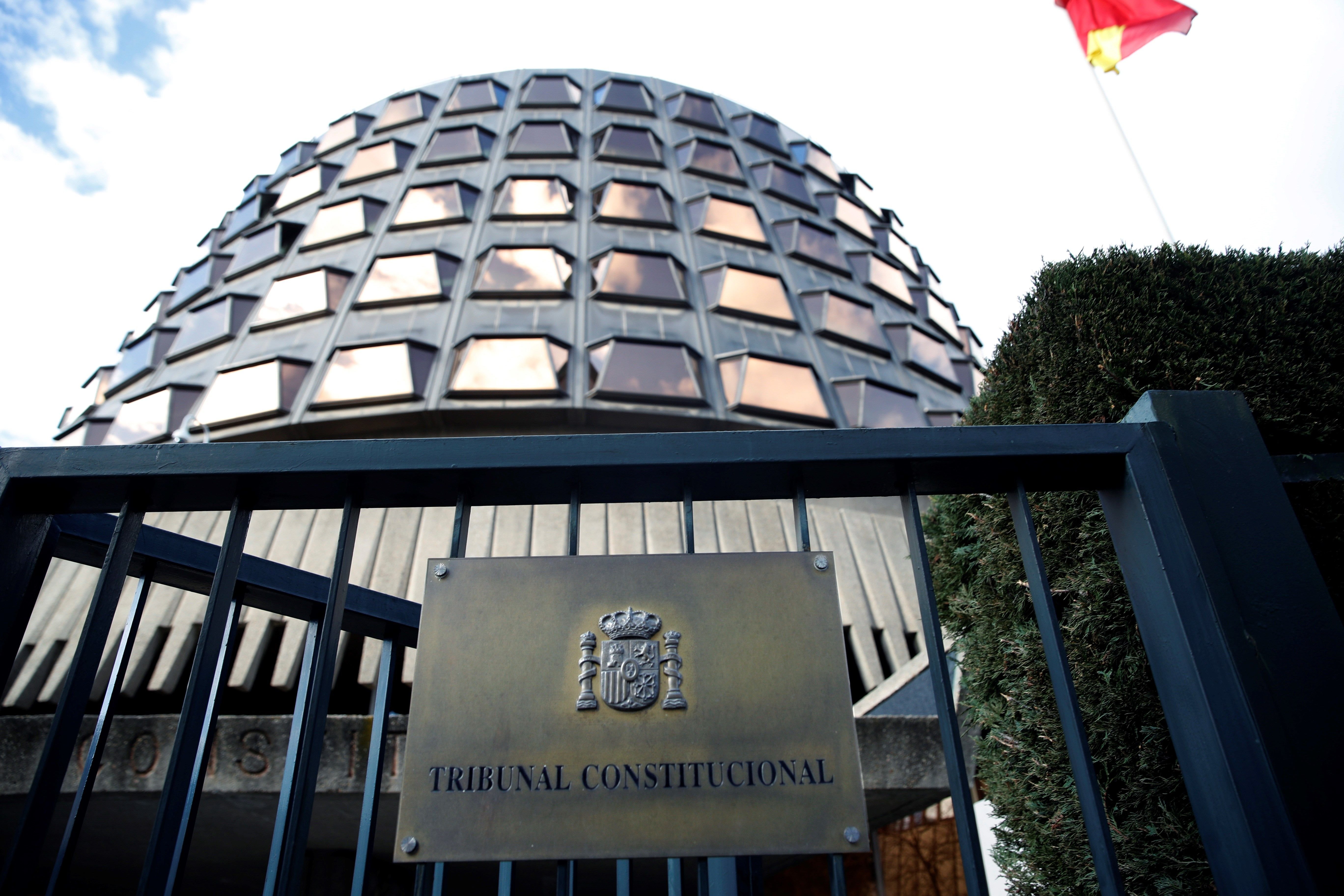It was a ruling that split the court down the middle, but finally, by six votes to five, there is a Spanish Constitutional Court judgement this Wednesday. After weeks without agreement, the court has today declared unconstitutional the general lockdown of the Spanish population decreed by prime minister Pedro Sánchez in the first state of alarm against the Covid-19 emergency in spring 2020. Thus, the judges partially accept the appeal filed by the far-right Vox party and argue that the government executive suspended fundamental rights with a legal instrument that only allowed those rights to be restricted. There were five dissenting votes.
Thus, the report of judge Pedro González-Trevijano has finally been approved, even if only by a single vote of difference. And the justification is technical. The text approved argues that the suspension of a fundamental right could have been carried out under a state of emergency, but not a state of alarm. The Spanish constitution provides three status levels for emergency situations: in order of increasing gravity they are state of alarm, state of emergency and state of siege. Under the state of alarm that was declared, says the court, it was not possible to maintain the entire population of Spain confined to their homes, as this was not a "limitation", but a "suspension" of the fundamental right to free movement. To have the power to suspend this right, the government should have declared a state of emergency.
Thus, the decision declares unconstitutional and null practically the entirety of the article 7 of the decree, which made reference to the “restriction of the freedom of movement of the people” and established at-home lockdown right across Spain. On the other hand, the court rejects the claim that the limitations placed on funerals ceremonies and wakes were unconstitutional.
The ruling also clarifies that it does not open the door to legal claims against the state for the closure of businesses, which would have meant a much greater setback for the government.
For the moment, the court has not published the full content of the ruling, but in its vote of approval, the court vice-president, Encarnación Roca, was decisive, by finally decanting towards unconstitutionality. Judge Pedro González-Trevijano, Antonio Narváez, Santiago Martínez-Vares, Ricardo Enríquez and Alfredo Montoya, all proposed by the PP, also voted in favour of the text. The president, Juan José González Rivas, and the judge Andrés Ollero, Cándido Conde-Pumpido, María Luisa Balaguer and Juan Antonio Xiol opposed it.
The debate arose from an appeal filed by Vox in the Constitutional Court more than a year ago in which the far-right party denounced Spain's first Covid state of alarm as a "flagrant violation" of the Constitution for its "abusive and unjustified use" of the state of alarm facility. The party led by Santiago Abascal defended that "when the rights of assembly, demonstration and education are violated, what must be done is to channel it through the state of emergency." It should be remembered, however, that Vox voted in favour of the first extension of the state of alarm in Congress.
The approved report
Reporting judge Pablo González-Trevijano proposed to declare unconstitutional sections 1, 3 and 5 of article 7 of the state of alarm decree. These sections established that it was only permitted to travel on public roads to go to the supermarket, pharmacy, health centres, to work, to take care of dependent people and to go to the bank. Home lockdown was in effect throughout Spain from March 14th to May 4th, 2020.
The judge considers that the most restrictive measures of the state of alarm decree should have been decreed through the state of emergency, which is also contemplated in article 116 of the Constitution. The government has the prerogative to be able to approve a state of alarm, emergency or siege, as long as the Congress of Deputies continues to support it, after the initial two weeks which can be decreed by the executive alone.

